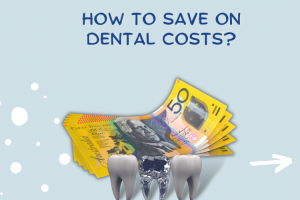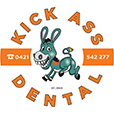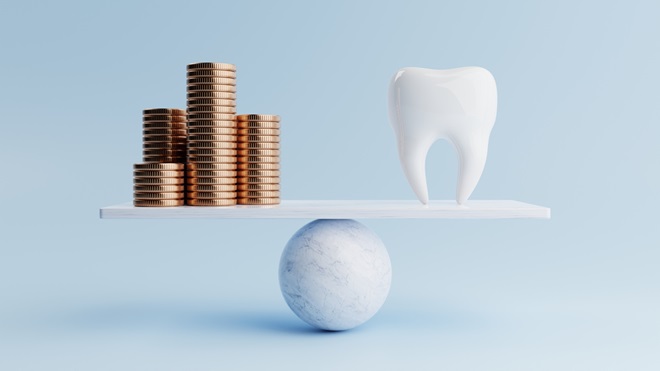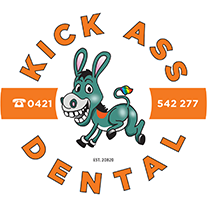Dental Costs in NSW: How to Save on Your Next Appointment
Dental care is essential for maintaining good oral health, but in New South Wales (NSW), many residents are concerned about the costs associated with dental visits. From routine check-ups to complex procedures, dental expenses can add up quickly. Understanding dental costs in NSW, knowing what factors influence pricing, and learning strategies to save can help you get the care you need without breaking the bank. This guide provides practical tips for managing dental expenses and making informed decisions for your oral health.
Understanding Dental Costs in NSW
Dental costs vary widely in NSW depending on the type of treatment, the clinic, and whether you are using private or public dental services. Common factors that influence costs include:
1. Type of Treatment
Different dental procedures have different price ranges. For example:
Routine check-ups and cleanings: Typically $80–$200
Fillings: $150–$350 per tooth, depending on material
Crowns: $1,000–$2,500 per tooth
Root canal therapy: $600–$1,500
Dental implants: $3,000–$6,000 per tooth
Understanding the typical costs can help you budget for upcoming appointments.
2. Location of the Clinic
Dental fees can vary based on location. Urban areas like Sydney or Newcastle may have higher costs due to overheads, while regional or rural clinics may offer slightly lower prices. Comparing clinics in your area can help you find a cost-effective option.

3. Dentist’s Experience and Specialisation
Experienced dentists or specialists such as orthodontists, oral surgeons, or cosmetic dentists may charge higher fees. However, their expertise often results in better outcomes and fewer complications.
4. Use of Advanced Technology
Modern dental equipment, digital X-rays, 3D imaging, and laser treatments improve accuracy and comfort but can also increase costs. Clinics that invest in technology may charge more for certain procedures.
Ways to Save on Dental Costs in NSW
There are several strategies to reduce dental expenses without compromising care. These include insurance options, government programs, and preventive practices.
1. Use Private Health Insurance
Many Australians have private health insurance that includes dental coverage. In NSW:
Check if your plan covers preventive visits, fillings, or major procedures.
Use your annual dental allowance for check-ups and cleanings.
Some plans offer extras for orthodontics or cosmetic treatments.
By understanding your coverage, you can reduce out-of-pocket costs significantly.
2. Take Advantage of Public Dental Services
NSW offers public dental care through the NSW Health Dental Program for eligible patients, including:
Children and adolescents
Pensioners and low-income adults
People with specific health care cards
Public dental clinics provide essential services such as check-ups, fillings, extractions, and preventive care at reduced or no cost.
3. Look for Payment Plans and Interest-Free Options
Many private dental clinics in NSW offer flexible payment options, including:
Interest-free instalments
Payment plans for major treatments like crowns or implants
Bundled family care packages
These options allow you to spread the cost over time, making dental care more affordable.
4. Compare Multiple Clinics
Prices can vary significantly between clinics. Before committing:
Request a written quote for your procedure
Ask about any hidden fees or additional charges
Check for ongoing promotions or discounts
Comparing clinics can help you find quality care at a lower price.
5. Prioritise Preventive Care
One of the most effective ways to save on dental costs is to prevent issues before they require expensive treatment:
Brush and floss daily
Attend regular six-month check-ups
Limit sugary foods and drinks
Use fluoride toothpaste and mouthwash
Preventive care reduces the likelihood of cavities, gum disease, and costly procedures like root canals or implants.
Common Myths About Dental Costs in NSW
1. “Dental Care is Too Expensive, So I’ll Skip It”
Skipping routine visits can lead to more severe and costly problems later. Preventive care is often far cheaper than restorative treatments.
2. “Public Clinics Have Long Wait Times, So They’re Not Worth It”
While some public clinics may have waitlists, they provide essential care at low cost. Planning ahead and booking early can help you access services when needed.
3. “Insurance Covers Everything”
Dental insurance often covers only a portion of costs. It’s important to understand your plan’s limits, waiting periods, and exclusions.
Tips for Reducing Costs During Your Next Appointment
1. Schedule Early Appointments
Some clinics offer lower fees for morning appointments or during off-peak hours.
2. Combine Treatments
If you need multiple procedures, combining them in a single visit may reduce overall costs and save on repeated fees.
3. Ask About Preventive Discounts
Many clinics offer discounts for regular patients or preventive care packages that reduce the cost of future visits.
4. Maintain Oral Hygiene at Home
A consistent daily oral hygiene routine can significantly reduce the need for expensive dental work over time.
Understanding Cost vs. Value in Dental Care
While it may be tempting to choose the cheapest option, it’s important to consider the value of care. High-quality dental treatment often means:
Fewer complications
Longer-lasting results
Better overall oral health
Balancing cost with quality ensures your dental health is protected without unnecessary expenses in the future.
Conclusion
Dental costs in NSW can vary depending on treatment, location, technology, and dentist expertise. However, with careful planning, preventive care, and awareness of insurance and government programs, it’s possible to reduce expenses while maintaining high-quality oral health care. Strategies such as using private insurance, exploring public dental options, implementing payment plans, and prioritising preventive visits can help you save on your next appointment. By making informed decisions and investing in regular dental care, NSW residents can protect their smiles, prevent costly procedures, and enjoy a healthier, more confident future.





